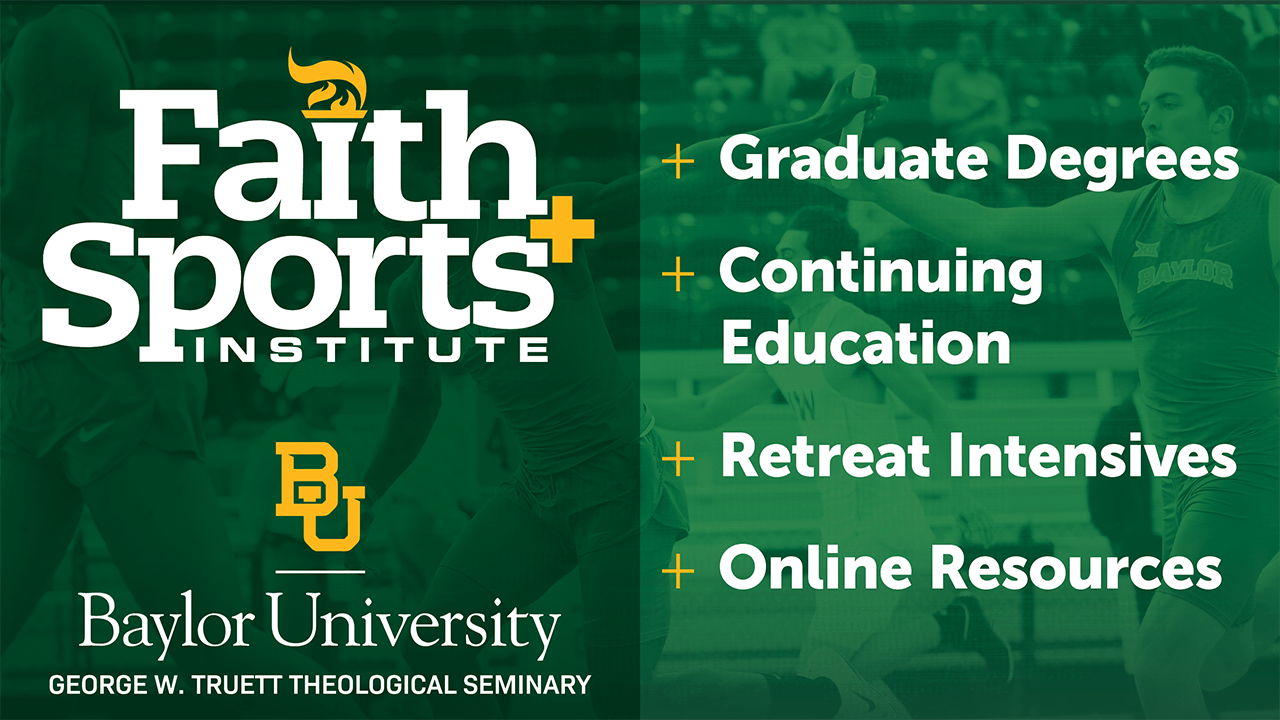“That’s not my responsibility.”
“I don’t work in that department.”
“I have enough to do in my role, I don’t have time to help anyone else.”
All of these are phrases I’ve heard in my career in college athletics, dating back to my first job six years ago. Now, not every individual uses these. I would even say they’re not used by the majority of people in college sports. But they’re used enough that they’re a common feature of the athletic department workplace, no matter the sport or the school or the position that one may have.
Before I started working at the college level I was a high school teacher and coach. We didn’t have the resources of a major college athletic department, so we had to get creative and find ways for all sports to benefit. There’s a phrase for this: servant leadership.
When I moved to the college ranks, however, too often I found myself beginning to fall into a more selfish mindset, focusing on doing things for my own benefit. My goal in life was to be a servant leader, but I wondered if the servant leader model could have success in my new environment.
So I dove deeper into the Bible and the life of Jesus. I considered the mission field that He placed me in, and I thought about the type of person Jesus calls me to be in the workplace. And I realized I had to make some changes if I wanted to make the wish of servant leadership a reality.
Maybe you are in a similar place, wondering if you need a me-first approach to move ahead. If so, here are three practical steps and habits that have helped me stay committed to living out the servant leader role.
1. See the people
“See the people” means to recognize and value those I work with as image-bearers of God. Like me, they have been created with unique personalities, skills, and mentalities. They have distinct experiences and ways they go about doing things. The office gives us an opportunity to come in, work together, and learn from people who can bring a whole different point of view. We get to bring our different gifts and abilities and achieve something together that we could not do on our own. That’s the beauty of athletics: the cohesion of diverse individuals striving towards the same goal.
I think this is an area that is sometimes missed in the college athletic workplace. With so many positions, titles, and roles, one can get lost in the career-trajectory mindset, putting all of one’s efforts towards the next step. I understand that work needs to get done and every day is not social hour. However, there is ample time to get to know, understand, and care for the people one works with.
Ways to see the people:
• Engaging conversations
• Eating together
• Compliments (professional/personal)
• Birthday celebrations
2. See the need
This one is self-explanatory but can be difficult. In life and in athletics it is easy for people to get so focused on their own personal needs or desire for comfort that they don’t think about how they can help others. But a servant leader tries to recognize the needs of anyone within their area of influence.
In college sports, with the large staffs and frequent changes, it’s important to take care of one’s own responsibilities first. But the best servant leaders I’ve seen make room for needs beyond their own. They are so others-focused that I often wonder how they get anything done.
For me personally, as I take care of my responsibilities, I try to make sure that I also make myself aware of the needs that players, coaches, and personnel may have in the moment.
This chair looks out of place, let me go set it straight.
This young man is acting differently that he usually acts, let me speak to him and see if I can help him with his day.
This coach needs documents copied but has to make it to another meeting in five minutes, let me help him with the copies so that he can make his meeting.
These scenarios might seem simple, but they can have great importance in the overall function of the athletic department and the team.
Ways to see the need:
• Look and see if there is anything that you can help with
• Understand the roles of others so you can provide help for them that is beneficial
• Intentionally set time away to serve at practice, game, or another event
3. Encourage others
The competition to obtain a position and advance in college athletics is intense. My inbox is full of resumes and questions from people asking how they can get in. With so much demand for a job, there is often a feeling of negative competition that follows a person into their position.
I experienced this when I first began in college athletics. I was always on guard with my responsibilities and distanced myself from help because I thought other people wanted what I had. I was trying to protect my territory instead of serving the good of the whole. I realized that I wasn’t being myself, that I was dealing with my own insecurities and fears.
I remember changing the way I did things in my second year. I am naturally an encourager, so I decided I wanted to be intentional about cheering on the success of others. I began to let people know that I appreciated them and the quality they put into their work. If I knew they had a big project coming and could see the stress building, I would go over and reassure them. I tried to take every opportunity to pour positivity, belief, and support into someone’s day.
When a new equipment manager joined our staff and put a new system in for departures, I noticed the increased efficiency right away. The way he set up bins, bags, towels, and boxes created great flow for players and coaches as we prepared to leave the stadium for the plane. In my first year I might have avoided giving him any praise. But instead, I let him know. I went to his office and told him my observations; he thanked me and told me he was having a tough day and needed those words.
There are a lot of people working hard in athletics, and many are not noticed at all. The encouragement that they need to continue could be just a word or an action away, if we’re intentional about it.
Ways to encourage others:
• Write a letter
• Send a message (text or email)
• Call them
• Highlight them on social media
• Bring their name up in circles that they may not have access to
• Start meetings with shoutouts
Of course, even though I try to be a servant leader, I still have times where I let my selfish ambition and pride deter me. But my prayer is that I may be the hands and feet of Jesus in the workplace. If we can see the people, see the need, and encourage others, we can live out the hope for the servant leader in college athletics or any other workplace environment.
 About the author: Edward Jones II is an experienced director of player development at the collegiate level. Over his career he has served 500+ student-athletes at three different NCAA Division I schools. In his role Jones focuses on the personal wellness, community impact, and career development of the student-athletes under his influence. Jones is a sought-after guest for podcasts and programs related to sport and personal development, and is a member of the NFL College Football Administration Committee. He is also the founder of Beyond the Field Program LLC, created in 2020 with the goal of fostering student-athlete impact, providing player development education, and supporting athletic professionals.
About the author: Edward Jones II is an experienced director of player development at the collegiate level. Over his career he has served 500+ student-athletes at three different NCAA Division I schools. In his role Jones focuses on the personal wellness, community impact, and career development of the student-athletes under his influence. Jones is a sought-after guest for podcasts and programs related to sport and personal development, and is a member of the NFL College Football Administration Committee. He is also the founder of Beyond the Field Program LLC, created in 2020 with the goal of fostering student-athlete impact, providing player development education, and supporting athletic professionals.
You can learn more about Jones’s work and program at btfprogram.com, or you can follow him on Twitter @Ed_Jones2.





